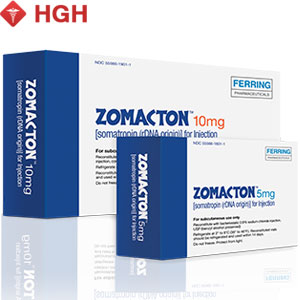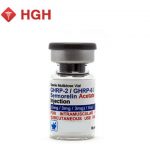
Testosterone is a steroid and male sex hormone that affects a wide variety of body functions, including those functions that occur in the brain. Testosterone and brain function are linked. Testosterone production gradually diminishes with age in both men and women. Low testosterone levels may be a factor in both cognitive and emotional issues.
Testosterone Production
The body makes testosterone from cholesterol. Men produce and use much more than females, although both sexes produce the hormone. Small amounts of testosterone are secreted by the ovaries and larger amounts by the testicles. The adrenal glands also secrete testosterone. Testosterone affects muscle mass and strength, bone density and maturation of the sexual organs. Women are more sensitive to its effects than men. The male brain is generally sightly larger than the female brain – this is believed to be due to testosterone influence.
Testosterone Brain Activity
Testosterone levels rise during the first few weeks of life in male infants and stay high for a few months. By the age of four to six months, however, the levels are barely detectable. Scientists believe this increase in testosterone may be a form of brain masculinization, as the testosterone crosses the blood-brain barrier but no changes in the rest of the body have been detected. Testosterone brain activity may affect aggression in men by acting on the hypothalamus in the brain. High testosterone has been correlated with violent behavior in men. However, high levels of testosterone in women are correlated with a tolerance for risk in women's career choices.
Testosterone Brain Function
Testosterone affects attention (the ability to focus on a particular object or task), memory and spatial ability in humans. There is some research that indicates low testosterone levels may be a factor in cognitive decline and may possibly increase the risk of Alzheimer’s dementia. Testosterone levels gradually decrease with age. Other factors that can affect testosterone levels include exercise (resistance training increases levels of the hormone) and nutrition – Vitamin A deficiency lowers testosterone, while supplementation with zinc and vitamin D can increase testosterone. Weight loss can increase testosterone levels. Ingestion of licorice can decrease testosterone production, more so in females than males.
Testosterone and Emotions
Research shows that in general, women tend to be more anxious than men. This anxiety seems to be linked to testosterone levels and administration of testosterone helps allay anxiety. In studies on mice, administration of testosterone also helps males with anxiety. As with anxiety, depression is more common in females than males. In men, depression tends to increase as serum testosterone drops (which often occurs as men age). Studies show that administration of testosterone for sexual problems also improved depression in men and was as effective as standard anti-depressants. The combination of low testosterone and depression increases the risk of falls in older men. Testosterone also affects those areas in the brain that promote empathy. Women given testosterone found it more difficult to identify emotions than those who did not receive the hormone.
Memory, Testosterone and Brain Function
Testosterone supplementation has been clearly shown to improve memory in both men and women. In women, there is more of an effect on verbal memory, while in men, the improvement is in visual-spatial memory. Learning and memory also improved in both sexes after testosterone supplementation. Testosterone has also been shown to improve memory in people who have Alzheimer's disease. The effect on memory seems to be dose-related. Women tend to score high in verbal fluency than men; the study indicates this may be due to lower levels of testosterone.
In one study of people changing gender from female to male, high doses of testosterone affected the gray matter in the brain in areas use for language processing. Low testosterone may also make it more difficult to concentrate, although high levels may also have negative impacts on brain function – the key is balance. Testosterone seems to affect how regions of the brain communicate. When too high, testosterone brain function reduces connectivity between brain cells (neurons).
Does testosterone increase brain power? In the sense of improving the cognitive functions of someone who has normal testosterone levels, probably not. However, in someone who has low testosterone, supplemental testosterone injections may help them recover normal cognitive function. Testosterone is given by injection and only with a doctor's prescription. It should not be used for body-building, but is appropriate for those with clinically verified low testosterone levels. If you suffer from low testosterone, fill the form to contact our advisor.




